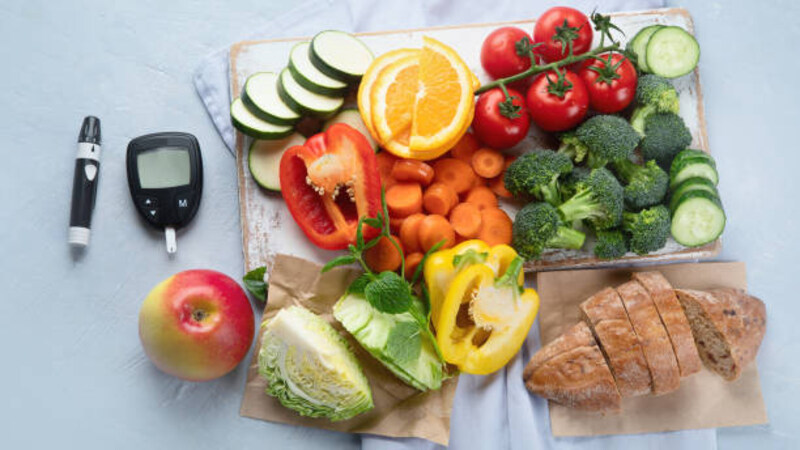If you or someone you know has diabetes, meal planning can seem daunting. It's important to take control of your health and understand the connection between food choice and managing diabetes. With proper oversight and some creative thought in the kitchen, it is possible to make healthy meals that don't sacrifice on flavor or taste. Finding a good balance between carbohydrates, protein, and fat will help keep blood sugar levels at a healthy level while also satisfying hunger cravings without overdoing portions.
When preparing meals for diabetes, it is essential to pay attention to the carbohydrates that you are using. Carbohydrates are a major source of energy and generally provide our bodies with the fuel they need. However, certain carbohydrates such as simple sugars (like in candy or soda) can cause drastic spikes in blood sugar levels, which requires more insulin from the body.
Understanding the Basics of Diabetes Meal Planning:
Diabetes can be a challenging condition to live with, but proper meal planning can make a big difference. When you have diabetes, your body struggles to regulate blood sugar levels, so it's important to choose foods that won't spike your glucose levels. Diabetes meal planning involves more than just limiting carbohydrates, though that is a big piece of the puzzle.
You'll need to choose plant-based foods, lean protein, and healthy fats in quantities that suit your body's needs. The good news is that there are plenty of delicious options available, from colorful salads to satisfying stir-fries. With a bit of planning and education, you can be well on your way to managing your diabetes like a pro.

Counting Carbohydrates for Balanced Diabetic Meals:
For diabetics, keeping blood sugar levels stable is essential to maintaining good health. One way to achieve this goal is by counting carbohydrates, which are the primary source of glucose in the body. When it comes to meal planning, choosing the right balance of carbohydrates, protein and fat is key.
By being mindful of the carb content of their food, diabetic patients can make healthier choices and create balanced meals that support their overall health. While this may seem daunting at first, there are plenty of resources and tools available to help simplify the process. With a little practice and some guidance from a healthcare professional, counting carbohydrates can become second nature and pave the way to a healthier and happier life.
Incorporating Healthy Fats and Proteins Into Your Diabetic Diet:
When it comes to managing diabetes, diet is one of the key factors. It can be overwhelming to figure out what to eat and what to avoid, but incorporating healthy fats and proteins can be a game-changer. Healthy fats, like those found in avocados and nuts, can help improve insulin sensitivity and keep you feeling full and satisfied. Likewise, protein-rich foods such as:
can help stabilize blood sugar levels and maintain muscle mass. Plus, both healthy fats and proteins can add flavor and variety to your meals, making a diabetic diet much more enjoyable. Don't be afraid to experiment with different recipes and ingredients to find what works best for you and your diabetes management.
Preparing Low-Sugar Snacks to Satisfy Cravings:
Snacking can be a hard habit to break, especially when it comes to satisfying our cravings. But with a few simple tweaks, it's possible to prepare delicious snacks that are low in sugar and still pack plenty of flavor. Instead of reaching for a processed granola bar or a bag of chips, try slicing up some fresh veggies with a homemade dip, such as hummus or guacamole.
Another tasty option is to roast some nuts in the oven with a sprinkle of cinnamon and a touch of honey. These low-sugar snacks not only taste great, but they also provide a nutritious boost to your day. So next time you feel the urge to snack, try reaching for one of these options instead.
Choosing Nutrient-Rich Foods for Optimal Health:
Eating a well-balanced diet is essential for maintaining optimal health. Choosing nutrient-rich foods is a crucial aspect of this healthy eating plan. Nutrient-rich foods provide our bodies with essential:
- vitamins,
- minerals,
- nutrients,
that are necessary for proper bodily function. These foods include:
- whole grains,
- fruits,
- vegetables,
- lean proteins,
- healthy fats.
By incorporating these foods into our diet, we can improve our overall health and reduce the risk of chronic diseases such as:
- heart disease,
- diabetes,
- cancer.
When selecting foods, it's essential to be mindful of portion sizes and pay attention to the ingredients in packaged items. With a little effort and attention to detail, we can create a diet that nourishes our bodies and promotes optimal health.
Creating Variety with Spices and Herbs in Your Diabetes Meal Plan:

If you have diabetes, following a healthy meal plan is crucial to managing your condition. However, this doesn't mean that your meals have to be monotonous or bland. You can easily add a burst of flavor to your dishes by incorporating different herbs and spices. Not only do they enhance the taste, but they also have potential health benefits.
For example, cinnamon has been shown to improve blood sugar control, while garlic may help lower blood pressure. Don't be afraid to experiment with different combinations to find what works for you. Adding a little bit of variety to your meal plan will keep things interesting and help you stay on track with your health goals.
Conclusion:
By following the above six steps, individuals with diabetes can make smart food choices and gain a better understanding of how to develop a meal plan that meets both their nutritional requirements and their lifestyle. Creating an effective meal plan requires planning in advance and knowing what to look for in the foods you’re choosing. Counting carbohydrates, ingesting healthy fats and proteins, choosing nutrient-rich foods, and incorporating spices and herbs into your meals will not only help create balance but also improve overall health.
FAQs:
What diet is best for diabetics?
The best diet for diabetics is one that consists of nutrient-rich foods, such as whole grains, fruits, vegetables, lean proteins and healthy fats. Counting carbohydrates is also an important part of managing diabetes.
What not to eat for diabetes?
Foods to avoid when managing diabetes include processed and sugary foods, refined grains, trans fats and saturated fats. It’s also important to limit alcohol consumption and avoid unhealthy snacks such as chips or candy bars.
How can I control my sugar naturally?
There are a few steps you can take to help control your blood sugar levels naturally. Exercise regularly, get plenty of rest, and eat a balanced diet with plenty of nutrient rich foods, such as whole grains, fruits, vegetables and lean proteins.







